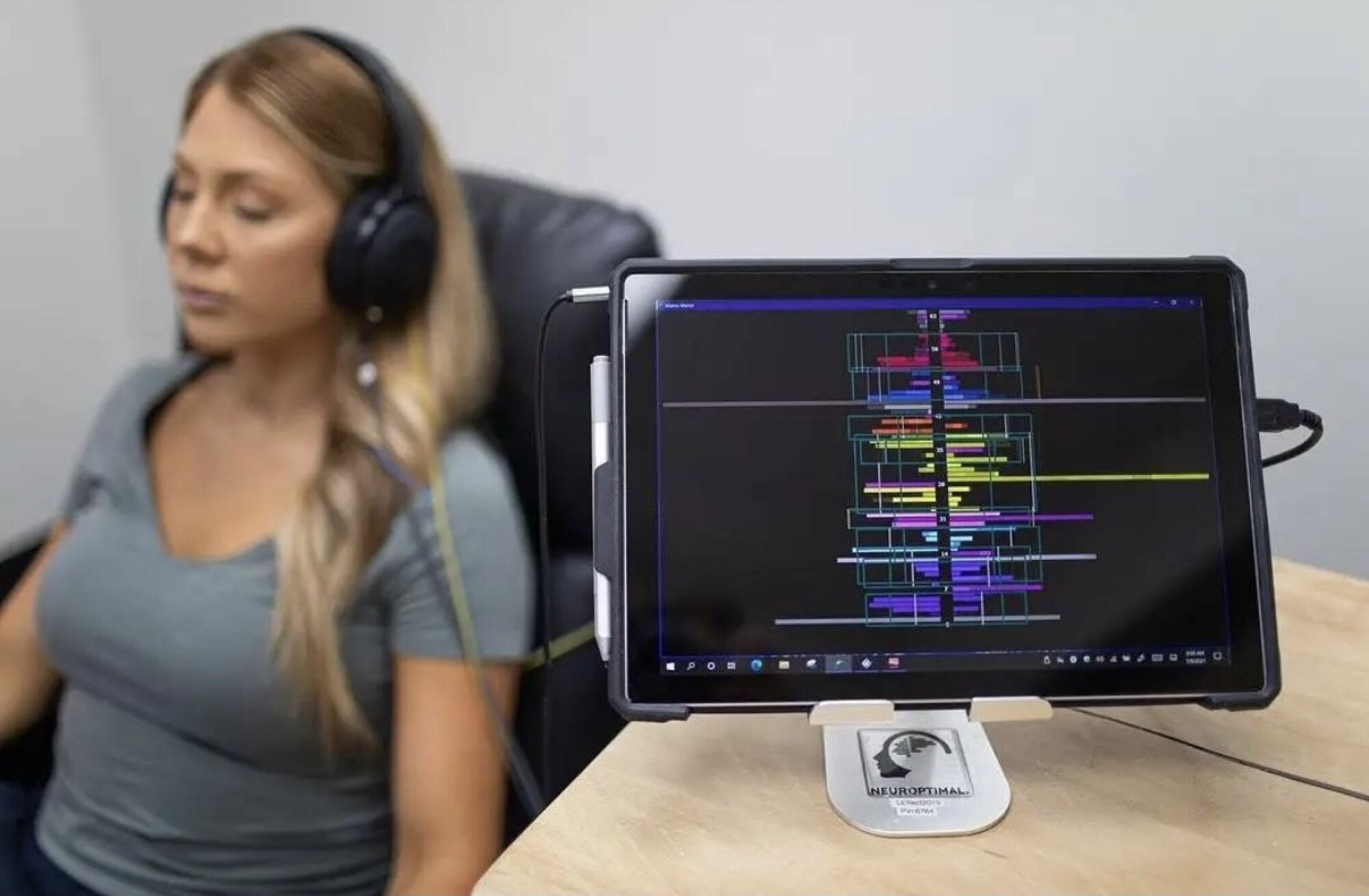Ending Chronic Insomnia: Addressing Insomnia’s Critical Role in Mental Health Recovery

The Bidirectional Commonality Between Sleep Disturbances and Psychological Wellbeing
Insomnia and mental health disorders maintain a complex, bidirectional relationship that creates challenging treatment obstacles for both clinicians and patients. According to new research, more than 90% of patients with major depressive disorder experience significant sleep disturbances. In contrast, persistent sleep problems significantly increase the risk of developing depression, anxiety, and other psychiatric conditions.
This intertwined relationship represents a clinical challenge and an opportunity for novel treatments. As our understanding of sleep neurobiology advances, innovative treatment approaches targeting sleep disturbances show promise in breaking cycles of psychological distress that resist conventional interventions.
“Sleep disorders should not be viewed merely as symptoms of psychiatric conditions,” explains Dr. Elizabeth Blake Zakarin, clinical psychologist at Columbia University Clinic for Anxiety and Related Disorders. “They often serve as crucial maintenance factors and can precede the onset of mental health problems by months or even years.”
This perspective shift has profound implications for commonly available treatment options, particularly regarding sleep difficulties that remain even after other psychiatric symptoms have improved.
The Sleep-Mental Health Connection:
Sleep is fundamental to optimal brain function, affecting everything from emotional regulation to cognitive processing. Poor or insufficient sleep increases negative emotional responses to stressors and decreases positive emotions, creating a vulnerability to psychiatric symptoms.
While many intuitively know they feel better after a good night’s sleep, recent neurobiological research scientifically explains this experience. Sleep helps maintain cognitive skills essential for stress management, including attention, learning, and memory. Even minor stressors can become overwhelming without adequate restorative sleep, as the brain’s regulatory mechanisms are compromised.
This relationship becomes particularly evident in depression. Sleep deprivation studies consistently show that otherwise healthy people experience increased anxiety and distress following poor sleep. For those already experiencing mental health disorders, chronic sleep problems exacerbate psychiatric symptoms and may increase suicide risk.
Research published in Sleep Medicine in 2021 examined 22,330 adults across 13 countries and found that one in three had clinical insomnia symptoms, with nearly 20% meeting criteria for insomnia disorder, rates more than double pre-pandemic levels. These sleep disturbances were strongly linked to psychological distress, with anxiety and depression rates significantly higher than pre-pandemic measurements.
Residual Insomnia: The Overlooked Barrier to Full Recovery
Even when psychiatric treatments successfully reduce primary symptoms like depressed mood or anxiety, sleep disturbances often persist as “residual symptoms.” Studies indicate that between 50% and 90% of patients who achieve formal remission from depression continue experiencing sleep difficulties.
These residual sleep problems predict shorter time to relapse and poorer long-term outcomes. In one analysis, patients with residual insomnia following depression treatment were three times more likely to experience recurrence within the following year compared to those without sleep complaints.
Mid-nocturnal insomnia (waking during the night and having difficulty returning to sleep) appears most resistant to conventional treatment, with studies showing persistence rates between 36-82% in patients otherwise responding to antidepressant therapy. This subset of symptoms is followed by sleep-onset insomnia (17-58%) and early morning awakening (18-49%).
“Many clinicians focus primarily on mood symptoms and consider the case resolved when those improve,” notes David A. Mayen, Program Director at Sleep Recovery. “However, persistent sleep disturbances often indicate unstable brain function that hasn’t fully normalized despite symptom improvement in other domains.”
The Neurobiological Basis of Sleep Disturbances
Sleep architecture refers to the pattern and organization of sleep across the night, including non-REM and REM sleep cycles. Depression and anxiety disorders often disrupt this architecture in specific ways that conventional treatments fail to address fully.
In regular sleep, the brain cycles through different stages, each serving distinct cognitive and emotional processing functions. Slow-wave sleep (deep sleep) predominantly occurs early at night and appears crucial for memory consolidation and physical restoration. REM sleep increases later in sleep cycles and plays a vital role in emotional processing and integration.
Depression frequently disrupts this pattern by:
- Reducing slow-wave sleep
- Decreasing REM latency (time to first REM period)
- Increasing REM density (amount of rapid eye movements during REM)
- Fragmenting sleep continuity
These disruptions aren’t merely symptoms but may actively contribute to maintaining depressive states by impairing emotional processing and cognitive function.
Interestingly, many effective antidepressants suppress REM sleep, suggesting this mechanism might contribute to their therapeutic effect. However, these medications often inadequately address other aspects of sleep disruption, particularly mid-nocturnal awakenings.
Conventional Treatment Approaches and Their Limitations
Current approaches to treating comorbid insomnia and mental health disorders typically fall into three categories: psychotherapy, pharmacotherapy, and lifestyle interventions.
Cognitive Behavioral Therapy for Insomnia (CBT-I) has limited efficacy for insomnia in depressed patients, with improvements only lasting a few months beyond the treatment period. However, Cognitive Behavioral Therapy for Depression (CBT-D) appears even less effective for sleep symptoms; in one study, 91.3% of participants still reported significant sleep problems after CBT-D despite improvements in mood.
Regarding medications, most antidepressants have complex effects on sleep. While some (particularly sedating antidepressants) may initially improve sleep, many others can worsen insomnia, especially in long-term use. Benzodiazepines effectively induce sleep but carry risks, including significant dependency and rebound insomnia. Newer non-benzodiazepine medications show better safety profiles but may still lose effectiveness over time.
Exercise shows promise as an adjunctive treatment, with one study demonstrating significant reductions in total insomnia, mid-nocturnal insomnia, and early-morning insomnia after a 12-week aerobic exercise program. However, many patients with depression struggle with the motivation and energy required for consistent exercise participation.
Mindfulness and Buddhist-based awareness cultivation approaches have shown benefits, particularly for sleep-onset difficulties. One randomized controlled trial found that mindfulness-based cognitive therapy reduced total wake time and improved sleep efficiency as measured subjectively and through polysomnography.
Despite these options, substantial treatment gaps remain, particularly for the persistent mid-nocturnal insomnia that frequently characterizes residual sleep disturbances in depression.
Brainwave Entrainment: A Neurological Approach to Persistent Sleep Problems
Among the most promising specialized interventions for addressing residual sleep disturbances is brainwave entrainment, a methodology that directly targets neurological patterns underlying both insomnia and comorbid conditions like anxiety and depression.
“What distinguishes brainwave entrainment from conventional approaches is that we’re addressing the underlying neurological instabilities rather than merely chasing symptoms,” explains David Mayen. “The brain receives detailed feedback about its activity patterns, allowing it to naturally self-correct toward more stable functioning.”
Sleep Recovery has developed a systematic protocol using FDA-cleared technology that helps clients achieve lasting improvements without medication dependency. Their approach employs specialized software that detects irregular brainwave patterns and provides direct feedback through auditory signals. Clients typically participate in 30-minute sessions every other day, a schedule that has helped thousands return to healthy sleep that sustains long-term. Phone-based follow-up has shown remission rates over three years at 89%, including subjects who went through the COVID-19 pandemic and protracted lockdowns.
This methodology proves particularly valuable for individuals whose sleep disturbances persist despite conventional treatment for depression or anxiety. Brainwave entrainment can help resolve symptoms that have resisted other approaches by simultaneously targeting the neurological underpinnings of both conditions.
Sleep Recovery as an Adjunct Therapy
For individuals struggling with comorbid mental health and sleep disturbances, Sleep Recovery’s brainwave entrainment program offers several advantages as an adjunct to existing treatments:
- Compatibility with other therapies: The program works harmoniously alongside medication, Buddhist-based CBTi, and other interventions such as TMS without interference or contradiction.
- No adverse interactions: Unlike adding medications that might interact with existing prescriptions, brainwave entrainment poses no pharmacological interaction risks.
- Addressing treatment-resistant symptoms: The approach targets neurological patterns that may maintain residual symptoms despite primary treatment success.
- Medication-free approach: Brainwave entrainment provides a non-pharmaceutical alternative for patients concerned about additional medications or experiencing adverse effects from sleep medications.
- Personalized neurological assessment: The program begins with detailed brainwave mapping to identify each individual’s specific patterns of dysregulation, allowing for targeted intervention.
“When we normalize sleep patterns through brainwave entrainment, we often see improvements across multiple symptom domains,” notes Mayen. “Better sleep leads to improved mood regulation, reduced anxiety, enhanced cognitive function, and greater energy during the day, creating positive feedback loops that support recovery.”
The program establishes ambitious yet achievable goals, helping clients achieve 6.5 to 8.5 hours of sleep 5-6 nights weekly with an 85% reduction in anxiety symptoms. While such outcomes might seem optimistic, they reflect documented results across several thousand client experiences since the program’s founding in 2008.
Stabilizing EEG First: Layering Treatment Modalities
Sleep Recovery’s approach has demonstrated effectiveness across diverse populations struggling with persistent sleep difficulties that have not adequately responded to conventional treatments.
Ruby Huggler, who struggled with chronic insomnia for 15-20 years despite trying numerous medications, reported remarkable improvements after just six sessions: “No more insomnia. I can enjoy eight hours of restful sleep—no more mid-insomnia. If I wake for any reason at night, I fall asleep easily. Less stressed. I am just as busy as I have always been. My daily schedule has not changed. Yet, I have the energy and mental focus to get through it without feeling stress, anxiety, worry, etc.”
The program proves particularly valuable for addressing mid-nocturnal insomnia, the most treatment-resistant form of sleep disturbance in depression. By directly targeting the neurological patterns that maintain nighttime awakenings, many clients experience improved sleep continuity within the first few weeks of treatment.
This distinctive approach focuses on creating sustainable improvements rather than temporarily masking symptoms. By helping the brain reestablish healthy activity patterns, clients typically maintain sleep improvements long after completing the program, unlike the typical pattern of symptom return following medication discontinuation.
The program overcomes traditional barriers to specialized mental health treatment through its remote delivery model. Clients receive necessary equipment shipped directly to their homes and participate in sessions remotely with ongoing support and guidance. This makes the intervention available throughout the United States, including to college students living away from home and those in areas with limited access to specialized mental health services.
This accessibility proves particularly valuable for individuals struggling with both depression and insomnia, as the very symptoms they experience often make it difficult to travel to appointments or maintain consistent in-person treatment schedules.
The program incorporates comprehensive tracking to monitor progress using wearable sleep tracking by way of measurements through Fitbit technology. “This objective measurement provides both accountability and motivation as clients witness their neurological patterns stabilizing over time,” Mayen explains.
Future Directions in Integrated Sleep and Mental Health Treatment
As research on the sleep-mental health connection advances, several promising directions emerge for improving outcomes for those with comorbid conditions:
- Early intervention: Identifying and addressing sleep disturbances before they develop into chronic patterns may prevent subsequent mental health deterioration.
- Transdiagnostic approaches: Recognizing that sleep disturbances cut across diagnostic categories and targeting them specifically rather than as secondary symptoms of another disorder.
- Precision medicine: Using individual sleep architecture profiles and neurobiological markers to match patients with optimal treatments.
- Technology integration: Incorporating wearable sleep monitoring into treatment planning to provide objective data for clinicians.
- Comprehensive recovery definition: Expanding our understanding of remission to include sleep normalization as a core criterion rather than a secondary consideration.
For those currently struggling with both mental health challenges and persistent sleep difficulties, multi-modal approaches that combine conventional treatments with specialized sleep interventions like brainwave entrainment offer the most promising path forward.
“The goal isn’t just symptom reduction, but true neurobiological recovery,” concludes Mayen. “When we help the brain reestablish healthy sleep patterns, we support fundamental processes necessary for emotional regulation, cognitive function, and overall wellbeing.”
For more information about Sleep Recovery’s innovative approach to treating persistent sleep disturbances, visit https://sleeprecovery.net or call 1-800-927-2339 for a free consultation.

